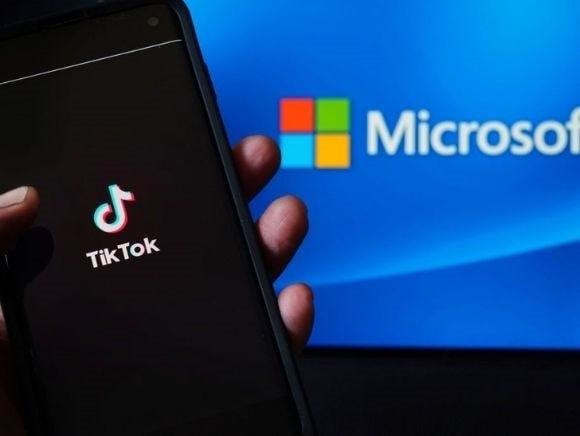TikTok is one of the most popular yet controversial social media platforms. Being owned and operated by Beijing-based ByteDance has brought national security concerns from government officials, including former President Donald Trump. The app has also been blamed for encouraging dangerous challenges among children, political censorship, cybersecurity issues, predatory behavior, and bullying. TikTok has reduced harmful content, but many flaws remain.
However, less frequently discussed are the positive sides of TikTok. Users can promote their brands for free, share life-changing and life-saving information, educate one another on nonfungible tokens (NFTs) and passive income methods, raise awareness for issues such as wildlife rehabilitation, and share uplifting, enjoyable videos.
The Bad
 There are no fact-checkers vetting the truth of each video’s content, so any tip, trick, or suggestion that could supposedly help – a home remedy for a medical issue, for example – might be pretty harmful in reality. Plenty of doctors and experts in every field you can think of are on TikTok, sharing dos and don’ts and commenting on videos that are terrible or great ideas.
There are no fact-checkers vetting the truth of each video’s content, so any tip, trick, or suggestion that could supposedly help – a home remedy for a medical issue, for example – might be pretty harmful in reality. Plenty of doctors and experts in every field you can think of are on TikTok, sharing dos and don’ts and commenting on videos that are terrible or great ideas.
One recent trend on TikTok, accumulating 94.9 million posts, is putting raw garlic cloves in your nostrils to help with congestion. However, health experts have quickly condemned this harmful practice, citing that it could worsen one’s condition. NYU’s ear, nose, and throat expert, Doctor Erich Voigt, shared that this practice could increase congestion and cause skin irritation, bleeding, severe sinus infections, chemical burns, and oral cavity burns.
Challenges on social media are not new. However, they used to be positive, harmless, and fun – like the “ice bucket challenge,” in which people would dump a bucket of ice on themselves to raise awareness for ALS. These days, TikTok has more than its fair share of dangerous, worrisome challenges for children. The “penny challenge,” which dares viewers to drop a penny between a plug and a wall outlet, has caused house fires. This is obviously a horrible idea to the average adult, but kids, unfortunately, don’t always know better.
Privacy Concerns
Beyond the dangerous nature of some content, there’s also a privacy issue. Nearly every social media app collects its users’ data – but TikTok’s practices have been deemed dystopian. TikTok has the right to amass “information you provide in the context of composing, sending, or receiving messages.” This means anything typed up and not sent or posted is still archived. The company also reserves the right to access the user’s phone model, current operating system, phone number, email address, location, IP address, search history, contact list, and keystroke patterns. All this information seems irrelevant to watching 15 to 60-second videos when you put it into perspective. Worst of all, in the United States, TikTok can collect biometric data, including voiceprints and facial features.
The company is adamant that the Chinese government has no access to its data collection. In response to public outcry worldwide, TikTok has made improvements to its privacy policy and operations. There is a kids-only mode, and profiles of users age 16 and younger are private by default.
The Good

TikTok influencers Abel Carden and Emiliano Decontreras Jr. (Getty Images)
Initially known for its dances and recipe sharing, TikTok has also become a platform for workout gurus. Whether it be a 26-year-old woman sharing her 100-pound weight loss journey or a certified nutrition expert reviewing what “Fit-Tokers” eat in a day, Americans are helping each other achieve their health goals.
Finance experts or ordinary people digging themselves out of a hole of debt share with followers ways to become entrepreneurs, increase their income, and invest in the stock market. Non-fungible tokens, NFTs, are a headscratcher. But women and men, young and old, are sharing how to create them, sell them, and start making money in the crypto game.
Passive income methods such as vending machine ownership are turning 18-year-olds into entrepreneurs. Wildlife rehabilitators share videos of their animals’ progress from being injured or sick to being released back into the wild. Electricians and plumbers share how to fix your own home so you don’t have to pay someone else to do it.
What the Good Brings
In 2017-2018, U.S. obesity prevalence was 42.4%. Obesity has become a severe health problem in the United States, and COVID-19 demonstrated how it increases one’s risk of much more severe disease and even death. Sharing tips, tricks, and motivations to lose weight or practice healthier eating habits has helped numerous Americans thus far on TikTok.
There are undeniable issues with TikTok’s content and privacy rules. However, it has also become a space for kindness and sharing. Social media receives a lot of blame for destroying our social fabric – but even with all the bad, TikTok has brought people positivity, support, advice, and comfort.
~Read more from Keelin Ferris.




